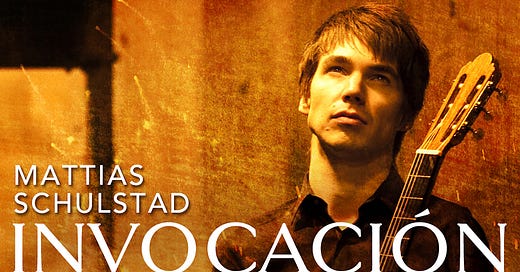Pujol’s Trois morceaux espagnols (Three Spanish Pieces) is in my view a comedy, telling the story of two people: first meeting, in the light but dramatic Tonadilla, where the soprano assertively introduces herself, followed by the tenor's response.
In the Tango, our couple is now better acquainted. The tenor’s interest seems to be returned, until the soprano suddenly withdraws: taken aback, he scolds her, and there is a great squabble. He realizes his mistake and settles for a lie, at which point the first theme returns, but in D major. She sees right through it, and starts to scream. His explanations are in vain, and great awkwardness ensues: when the first theme returns in its original A major, the spark is gone and the piece tapers away.
Our soprano and tenor must have made up somehow, because in the final Guajira, they appear to me as a settled, bickering couple, constantly interrupting each other. In spite of drama, grief and sudden fits of anger, they seem to be having a fine old time. Of course, I have no idea if this is what Pujol had in mind, but we do know that the Tango was dedicated to his wife.
EMILIO PUJOL
(1886, Lleida, Spain – 1980, Barcelona, Spain)
Trois morceaux espagnols
III. Guajira
Rythmique et animé
More listening options available here.
Character: Mischief
Duration: 04:46
Key: D major
Composer: Pujol
Historical period: Late Romantic
Country: Spain
Form: Overture, Tango, Guajira
Instrumentation: guitar (classical)
First published: 1926


